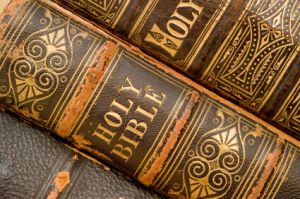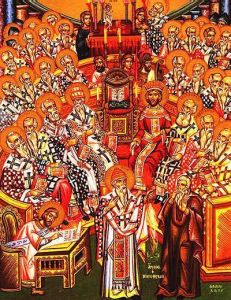
Which books truly belong in the Christian Bible, and how do we identify these? This question has been raised by the discovery in the past few decades of a surprising number of apocryphal texts which were rejected by Church leaders from inclusion in the Bible. Now a United Methodist minister and his colleagues are taking these developments a step further with a new book which includes many of these texts. For Universal Life Church ministers from the Christian tradition, such books challenge the assumption that the existing Bible as we know it is truly perfect and complete.
The Rev. Hal Taussig and co-authors created the new volume, called A New New Testament: A Bible for the 21st Century Combining Traditional and Newly Discovered Texts, to "spread the word", as it were, about texts which are not included in modern Bibles but were considered sacred to early Christians. Unlike the Middle Ages and Renaissance, the Christian world of antiquity was more open to what was considered divinely inspired Scripture, and the concepts of heresy and scriptural orthodoxy were not established until the fourth century, with the emergence of the first ecclesiastical synods like the First Council of Nicaea (325). Again, today, more people are open to re-considering what is considered divinely inspired Scripture, making works like A New New Testament a valuable receptacle of early Christian thought for ordained ministers and curious laypeople alike.
Taussig, et al's book differs significantly from the orthodox version of the Bible in terms of which books are regarded as spiritually relevant or useful to the reader. Unlike the typical Bible the average Protestant will read at church on Sunday mornings or at Bible study, the volume compiled by Taussig and his co-authors contains books deemed "gnostic" and studied almost only by scholars, such as the gospels of Thomas and Mary, the Epistle of Peter, and the Secret Revelation to John. Perhaps most noteworthy among these, especially for devout Christians who are familiar only with the traditional canon, is the Gospel of Thomas, which contains a number of eye-opening and sometimes surprising sayings attributed to Jesus.

The implications of Taussig and his colleagues' work are profound for the fundamentalist Christian notion of fixed revelation. According to the gospel of Truth, divine truth comes "from the fullness and is in the thought and mind of the Father." Consequently, "A New New Testament offers more texts that Christians may incorporate into their spiritual journey," writes James H. Charlsworth, director of the Princeton Dead Sea Scrolls Project, in a review of Taussig's book. But this claim suggests that divine truth is obtained through continuous revelation, and was not set in stone by a group of bishops centuries ago. In other words, the Christian spiritual narrative is continually developing as new wisdom is discovered, a proposition which is hard to accept for those Christians who believe they already hold the complete key to all wisdom in their hands.
It is reasonable to place certain criteria on the incorporation of apocryphal works into a sacred text: they should be reliable, truthful, accurate, or in some other way relevant to the work as a whole. But how do we determine which books "belong" in the Bible, and why should we assume a group of fourth-century bishops had a better grasp than modern-day scholars on what constitutes divine truth? Perhaps we are afraid of discovering a quotation by Jesus Christ which challenges our most cherished beliefs but, then, challenging beliefs was something done by Jesus himself.
Source:
The Philadelphia Inquirer


As one who was awoken in 2003 with messages from angels, Jesus, deceased relatives, etc., I am happy to see the rapid changes taking place in the world today. There is only one truth and all will come to the surface. All to be revealed at the right time - no sooner - no later.
Rev Kathy Hamden, CT